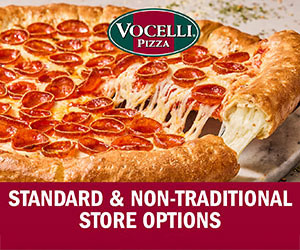Navigating the generational shift in the workplace: Part 1

Imagine a generation that's larger than the Baby Boomers, more influential than Millennials, and set to shake things up in a big way. That's Generation Z for you. Born into a digital world, they are tech savvy, socially conscious, and fiercely independent. We are not just filling jobs; we're (apparently) here to turn the work world upside down.
Remember the eye rolls about Millennials being lazy or entitled? Now, it's Gen Z's turn to face the music. But here's the twist: This generational clash isn't just noise; it's a wake-up call for change. Historically, every emerging generation has faced skepticism. Whether it was the Boomers, Gen X, or Millennials, newspapers and magazines have often echoed similar sentiments about each new generation. The generational gap, characterized by differences in opinions and outlooks, is a cycle that repeats itself. However, understanding these gaps is crucial to foster a harmonious workplace.
As the workplace continues to evolve, the arrival of Gen Z marks a significant turning point. As an experience consultant who happens to be a part of this generation, I have spent time analyzing exactly how we all best work together because understanding this shift is crucial. Whether we like it or not, Gen Z is set to reshape the future of work, bringing new behaviors, attitudes, and preferences. This generation, encompassing over a third of the global population, is not just about their numbers because they have the potential to influence technology, careers, politics, and organizational culture.
Gen Z's professional awakening
Unlike Millennials, who entered the workforce during the Great Recession, Gen Z was initially poised to inherit a strong economy with low unemployment. However, the Covid-19 pandemic altered their trajectory, creating an uncertain future. This reshaping of the socio-economic landscape has defined how Gen Z engages with work and does business.
Take my experience as an example. I graduated from American University in May 2020 with plans to move to New York for a promising career. However, the pandemic changed everything, leading me to enroll back in school and pursue a master's degree instead. And while it is normal (irrespective of generation) for our career journey to play out differently than what was once on our vision board, usually these deviations from what was planned didn't happen overnight… literally. This is a common narrative among my peers, reflecting the adaptability and resilience of Gen Z.
Older generations, including Baby Boomers and many Generation X workers, were conditioned to view employment as a privilege, adhering to a first-one-in-last-one-out work ethic. This approach was seen as the path to success and promotions. In contrast, Generation Z, having entered the professional world during the Covid-19 pandemic, places a higher value on work/life balance and tends to have a work-to-live mentality. They believe in the importance of their mental and emotional states in contributing to their success and productivity at work. Unlike older generations, Gen Z and younger Millennials have the freedom to pursue careers aligned with their passions, a liberty that older employees feel they did not have.
Purpose over paychecks
For Gen Z, it's not just about the money. We crave to be part of something bigger, something that resonates with our values and beliefs. Forget the corner office and the hefty paycheck; show us how we're making a tangible difference. That's our definition of success. Gen Z values authenticity and purpose more than future plans or monetary gains. This generation seeks fulfillment in their careers and desires to be empowered by employers to make a difference.
The rise of phenomena, like the Great Resignation and quiet quitting, is not an indictment of employees but a reflection of employers' failure to build a culture that aligns with these values. To some, this may sound cliche, but isn't this refreshing? For years we have heard business owners complain that their employees are disconnected from their mission and treat work like a 9 to 5 rather than being invested in the impact they are making.
For a growing number of employees, the role of work extends beyond mere financial sustenance. These individuals are increasingly seeking roles that not only offer a paycheck but also provide a sense of meaning, fulfillment, and contribute to a greater cause. This shift in mindset has led employees to seek deeper alignment with their organization's mission, aligning their personal aspirations with the company's objectives. Organizations that succeed in creating this sense of connection among their employees often witness enhanced business growth and improved customer satisfaction compared to those that don't.
Employees experience a heightened sense of meaning in their work when they recognize the positive influence their efforts have on the organization. Wharton Professor Adam Grant advocates for enhancing this sense of purpose by helping employees draw connections between their routine tasks and the overarching goals of the organization. Grant's research reveals that even brief interactions with satisfied customers can significantly remind workers of their work's broader significance, leading to improved performance by an impressive 500% surge in employee productivity. This increase occurs as employees cultivate a deeper conviction in the significance and worth of their contributions.
Check back next week for Part 2.
Cal DiJulius is a customer experience consultant at The DiJulius Group. To learn more, click here.
Share this Feature
Recommended Reading:
| ADVERTISE | SPONSORED CONTENT |
FRANCHISE TOPICS
- Multi-Unit Franchising
- Get Started in Franchising
- Franchise Growth
- Franchise Operations
- Open New Units
- Franchise Leadership
- Franchise Marketing
- Technology
- Franchise Law
- Franchise Awards
- Franchise Rankings
- Franchise Trends
- Franchise Development
- Featured Franchise Stories
| ADVERTISE | SPONSORED CONTENT |

$87,325





 The multi-unit franchise opportunities listed above are not related to or endorsed by Multi-Unit Franchisee or Franchise Update Media Group. We are not engaged in, supporting, or endorsing any specific franchise, business opportunity, company or individual. No statement in this site is to be construed as a recommendation. We encourage prospective franchise buyers to perform extensive due diligence when considering a franchise opportunity.
The multi-unit franchise opportunities listed above are not related to or endorsed by Multi-Unit Franchisee or Franchise Update Media Group. We are not engaged in, supporting, or endorsing any specific franchise, business opportunity, company or individual. No statement in this site is to be construed as a recommendation. We encourage prospective franchise buyers to perform extensive due diligence when considering a franchise opportunity.